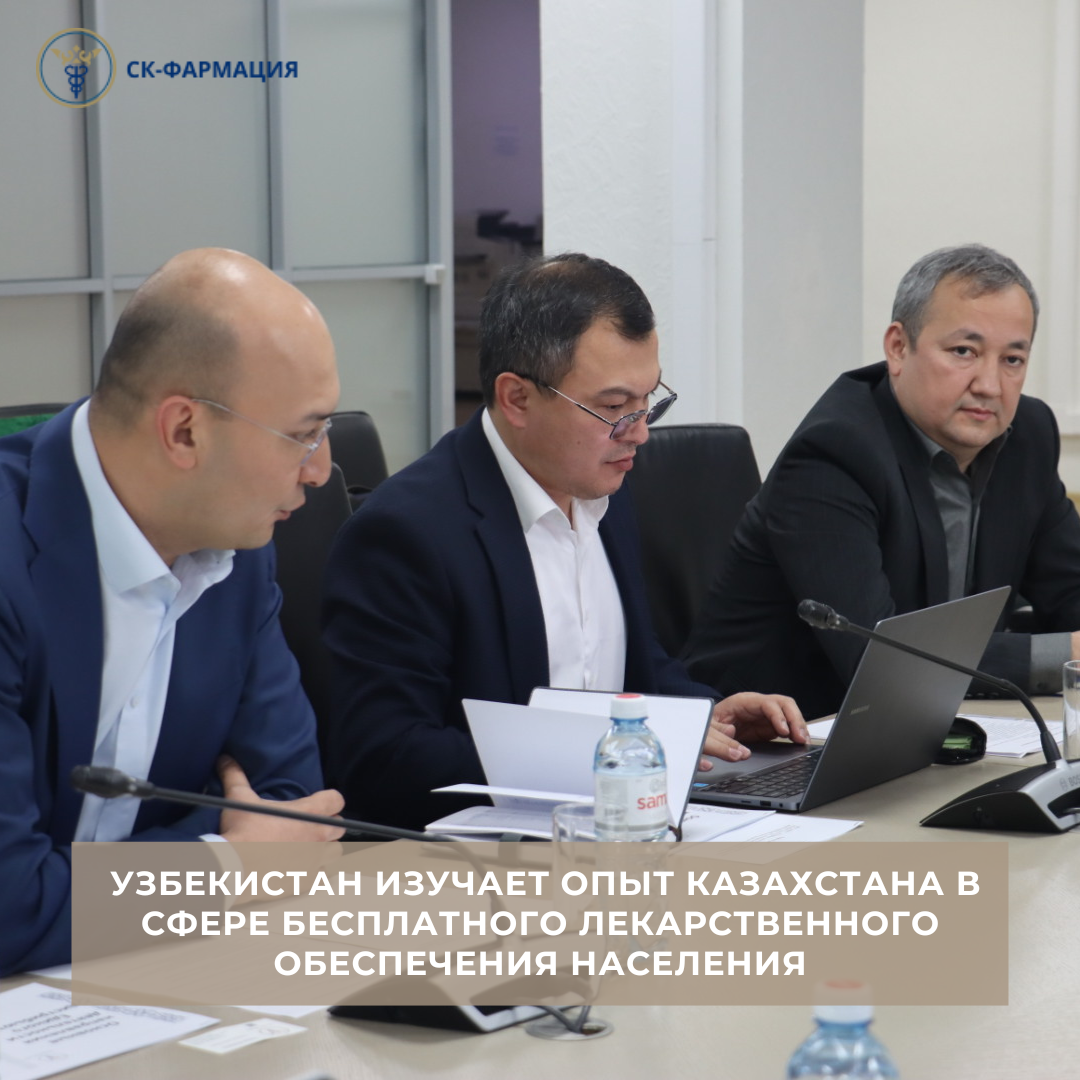In the current modern realities, it is impossible to talk about the effectiveness of medicine without transforming all business processes in the industry. That is why the Head of State has repeatedly noted the importance of digitalization of the healthcare system in his speeches.
The development of e-health includes both the integration of databases, the creation of a patient monitoring system, and a system for monitoring the movement of medicines and medical devices.
The lack of accurate information on the balances and traceability of medicines in medical organizations is the main problem in the digitalization of medicine supply.
Drug marking is the most important tool for controlling the movement of drugs through all supply chains from the manufacturer, distribution structure, pharmacies and medical organizations to the end point - the patient, and an important step towards the digital economy.
Stages of medication marking in Kazakhstan
The decision to conduct a pilot project on drug marking was made back in December 2018. And since September 2019, it was launched, for which methodological recommendations for this procedure were approved, a list of participants in the pilot project and medicines to be labeled were determined.
At the same time, in October 2020, by order of the Prime Minister, a comprehensive plan for the development of the pharmaceutical and medical industry for 2020–2025 was approved, which also includes issues of drug marking.
As for the pilot project, it was completed on July 31, 2021. According to the Kazakhstan Pharmaceutical Bulletin, 23 representatives of the pharmaceutical industry took part in the pilot, including manufacturers, distributors, pharmacies and medical organizations.
Based on the results of the pilot project, recommendations were sent to improve the marking and traceability information system.
From July 1, 2024, mandatory marking of medicines will be introduced in Kazakhstan.
In general, the introduction of marking for the traceability of goods in Kazakhstan is carried out within the framework of the Agreement on the Marking of Goods by Means of Identification in the EAEU, as well as the Law of the Republic of Kazakhstan “On Regulation of Trade Activities”, which came into force in the spring of 2019.
Initially, product marking in the country began with fur products, then it affected tobacco products and shoes. Attention is now focused on medicines.
International experience
Mandatory digital marking of medicines has already been introduced in Russia and is being actively implemented in the USA and the European Union, Turkey, South Korea, India, China, Italy, and Argentina.
In the process of introducing drug marking, each country has seen a number of positive effects. Marking of pharmaceuticals is part of a large project to digitalize the entire economy, which is of enormous importance for the entire country.
In Kazakhstan, the drug marking system is being introduced in stages.
For example, in the Russian Federation, the first stage of marking began in 2018 and gradually by 2021 they switched to mandatory marking for the entire list of drugs. In Turkey, which is a successful example of effective implementation of drug marking, preparations for mandatory drug marking lasted for 8 years.
Why is this necessary?
According to the World Health Organization, every tenth package of medicine in developing countries is counterfeit. Marking, in turn, guarantees consumers the authenticity and declared quality of the purchased medicine for treatment.
Thanks to digital marking, a digital platform, a unified register of drug market participants, a unified catalog of medicines will be created, and it will be possible to obtain statistics on drug turnover on a national scale in real time. We will move away from paper-based interaction between counterparties and interaction between government agencies will be simplified.
The introduction of mandatory marking and traceability will make the circulation of medicines more transparent, being one of the main tools for protecting against the circulation of counterfeit and falsified products, providing the buyer with the opportunity to independently check the purchased medicines for authenticity, significantly reducing the costs of the “flow” of medicines, simplifying the consolidation of information on the remains of medicines, and also providing piecemeal accounting of individual packaging from the manufacturer to the patient.
The introduction of a system of digital marking and traceability of medical products is a step towards ensuring access to quality medical care and protection against counterfeiting.
How does the marking system work?
Marking is the application by the manufacturer or importer of a special mark to the primary or secondary packaging, which is an identifier confirming the authenticity of the product.
Labeled medicinal products are medicinal products on which identification means and information are applied, which are contained in the information system for marking and traceability of goods (IS LTG), designed to provide information support for the processes of marking goods with identification means and their further traceability in the circulation process.
Identification means contain a unique marking code, which is a combination of symbols that includes 4 groups of data that meet international standards in the field of accounting and barcoding GS1 DataMatrix.
Marking with a Data Matrix code is the application of a special means of identification to a product – a two-dimensional square image in the form of blackand white fields. The code contains information about the manufacturer, country of origin, serial number and protection against hacking.
The system of digital marking of medicines involves the use of unique digital data matrix codes on the packaging of each medicine, which can be scanned using scanners, data collection terminals, POS terminals, as well as phone cameras and verify the authenticity of the products.
Who is involved in the turnover?
The marking system includes all participants in the circulation of medicines. The necessary information systems are integrated from entry at customs to delivery to the final recipient.
Marking of medicines with identification means is carried out by participants in the circulation of medicines (PCM) in accordance with the approved procedure of the Rules for the circulation of medicines, including the purchase, storage, import into the territory of the Republic of Kazakhstan, production, marking, transportation and sale of medicines. It should be noted that marking of medical devices with a DataMatrix code is not currently intended.
The following are involved in the circulation of labeled pharmaceutical products:
- Ø manufacturers;
- Ø wholesale companies, distributors;
- Ø retail outlets - pharmacies;
- Ø medical organizations;
- Ø Patients.
Each participant in the turnover must record the operations that are performed on the marked product. Thus, the entire path of movement of medicinal products is monitored, from the moment of production to their receipt by customers. Regulatory authorities will be able to find out at any time where the pharmaceutical product is located and how much time is left until its expiration date.
Currently, work is already underway in the country to equip medical institutions with the necessary equipment to read marking codes and integrate the relevant information systems.
Control, accounting and planning
Accounting, control and planning are key elements in the implementation of mandatory drug marking. This process includes a number of steps and measures aimed at ensuring transparency, safety and efficiency in the circulation of medicines.
Marking makes it possible to build a transparent record of medicines, as well as track the targeting of drug consumption, which in turn will provide the state with additional control over the optimal distribution and timely provision of medicines to the population. In addition, due to the availability of data on the consumption of medicines, the quality of planning for the purchase of medicines within the framework of the guaranteed volume of medical care and in the compulsory medical insurance system will improve.
Digital marking of drugs will allow online tracking of the movement of each drug, assessing demand and forming the necessary reserves. Conscientious market participants will become competitive by reducing the illegal circulation of drugs. They will be able to clearly plan and work out the logistics of manufactured drugs.
Legislative aspects
In Kazakhstan, there is a law “On approval of the rules for marking and traceability of medicines and marking of medical devices”, approved by order of the Minister of Health of the Republic of Kazakhstan No. KR DSM-11.
According to the law, marking of medicines is carried out by the manufacturer (or packaging company) of medicines for each unit of packaging (primary, intermediate, secondary) in the Kazakh and Russian languages, as well as:
- in the production of medicines on the territory of the Republic of Kazakhstan - in the places of production of medicines before the start of transportation and (or) sale;
- when importing medicines, including when importing medicines registered and unregistered in the Republic of Kazakhstan, imported in accordance with the Rules of Import and export to the Territory of the Republic of Kazakhstan from the territory of states that are not member states of the Eurasian Economic Union - on the territory of third countries, before importation into the territory of the Republic of Kazakhstan and (or) in customs warehouses, in accordance with the standard of good distribution practice, before placing such medicines under customs procedures for release for domestic consumption or reimport.
The circulation of medicines on the territory of the Republic of Kazakhstan after the date of introduction of marking by means of identification, in accordance with the law “On the Regulation of Trade Activities”, is carried out by transferring information about their sale to the system, subject to the staged implementation of marking and traceability.
The intake of medicines marked with identification means is confirmed in the LGT IS by the subject in the field of medicines circulation.
It should be noted that the Ministry of Health of the Republic of Kazakhstan is currently introducing changes to a number of regulatory legal acts regarding the application of administrative measures for violation of the rules of marking and traceability of medicines.
Cooperation with JSC Kazakhtelecom
JSC Kazakhtelecom, being a single marking operator, is working to build a traceability system for medicines into the existing infrastructure of the pharmaceutical market.
The Unified distributor is showing an active interest in finding opportunities to implement an automated drug supply system, adapted in its functionality for the sale of free prescription medications within the framework of the Statewide Volume of Medical Care and in the compulsory medical insurance system.
Thus, in 2020, a Memorandum was concluded between the Unified distributor and Kazakhtelecom JSC to conduct a pilot project on marking and traceability of medicines. As part of the pilot, labeled medicines were delivered to the warehouses of the Unified distributor and subsequently shipped to medical organizations.
During the launch of the process, a number of comments were identified, which were sent to Kazakhtelecom JSC for improvement. In addition, the parties studied the experience of introducing mandatory marking of medicines in foreign countries.
Based on the results of the pilot project, the Unified distributor agreed on improvements to the information system for monitoring the movement of medicines using marking and identification of packages in accordance with the business processes of the movement of medicines. Thus, having updated the business process diagrams, Kazakhtelecom JSC, taking into account the specifics of the activities of the Unified distributor, prepared and presented a prototype of the information system.
Positive changes to the system have been made in the area of maintaining the power of attorney functionality using the example of rented warehouses of the Unified distributor, namely the improvement of procedures for the acceptance, movement and shipment of medicines.
The changes allow the Unified distributor to log in to the system independently. In addition, lists of roles have been defined for the warehouses of the Unified distributor. Also, it is possible to maintain geographically distributed units for warehouses and create a transfer and acceptance certificate at the warehouse level, distribution among medical organizations.
Effects - what will it give?
Thanks to digital marking, manufacturers, medical institutions and government agencies will be able to see the most realistic picture of the consumption of medicines in real time. The market will become transparent, goods will be tracked, production capacity will be analyzed, and the distribution of goods will be regulated. Thus, the level of counterfeit and counterfeit medicines in the country will be reduced and brought to a minimum.
In addition, this will allow:
- Ø control the targeting of drugs purchased at the expense of the state;
- Ø ensure accuracy of planning and management of drug inventories;
- Ø enable the end customer to check the authenticity of the purchased drug using a special mobile application;
- Ø control the cargo flows of imported medicines;
- Ø the ability to confirm the passage of vaccines through storage facilities in the “cold chain”.
Labeling will allow all interested healthcare organizations to build a transparent record of medicines, as well as track the targeting of drug consumption, which in turn will provide the state with additional control over the optimal distribution and timely provision of medicines to the population. In addition, due to the availability of data on the consumption of medicines, the quality of planning for the purchase of medicines within the framework of the guaranteed volume of medical care and compulsory medical insurance will improve.
Ultimately, it is the consumer who wins. He will be completely protected from counterfeiting and will be guaranteed to receive high-quality medicines. At the same time, Kazakhstanis will be able to check the legality of the medicine by scanning the Data Matrix code using the free Naqty onim mobile application. The consumer will be able to see basic information about the product: information about the manufacturer, composition, expiration date and other important information. If the buyer finds that the expiration date has expired, then they can leave a complaint in the application.
Detailed information about the medicine marking system in Kazakhstan can be found on the Naqty onim website using this link.
In the long term, marking will have a positive impact on the development of the industry, making it possible to track the entire path of a medicine from the manufacturer’s machine to the pharmacy shelf. Marking will also improve the situation in the country with the supply and provision of medicines, thereby preventing their possible shortage.
There are benefits for the state as well. Marking will help not only reduce the volume of counterfeit products on the pharmaceutical market, but will also increase the collection of customs and tax payments.
It is also worth noting the benefits for business. Marking is a way to expand your market share and enter new markets by displacing counterfeit goods, counterfeit products and unfair competition.
The main outcome of the project is the eradication of illegal trade in medicines, including those used within the framework of state budgetary medical programs and compulsory social health insurance. This is guaranteed to affect the level of protection of the health of the country's population. In addition, the marking system will make it possible to regulate the prices of medicines.











